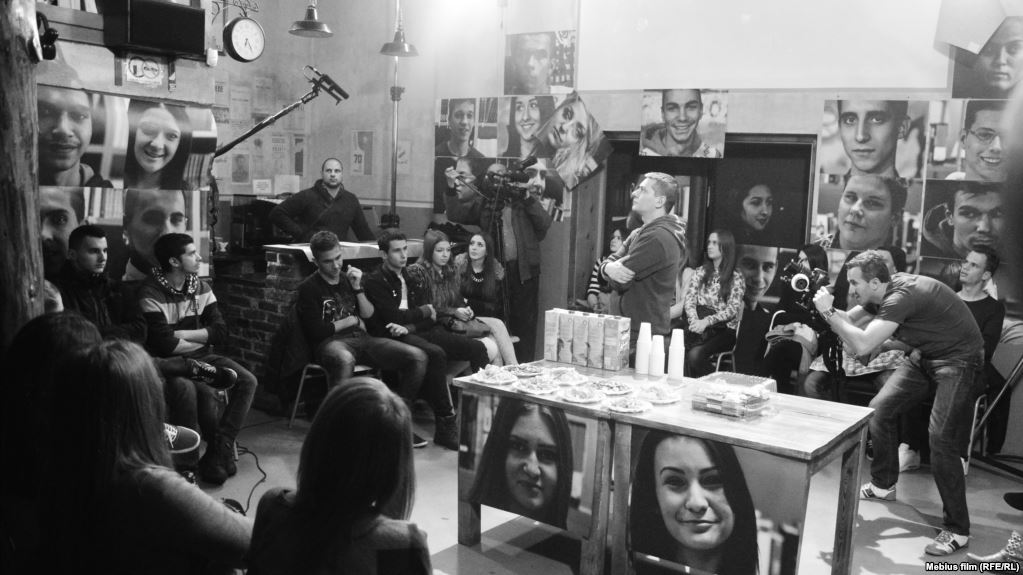RFE/RL’s Balkan Service marks 25 years of speaking with one voice

Washington, D.C. — RFE/RL’s Balkan Service this week is marking 25 years of reporting in one of the world’s most contested regions, celebrating a quarter-century of programming dedicated to pluralism and democracy at a time when political extremism and information warfare are again resurgent.
RFE/RL’s Balkan Service was created at the height of the Bosnian War with a mission “to serve as a daily reminder to the peoples of the former Yugoslavia that conflict was not preordained,” and that they could again live in peace. Programming began on January 31, 1994 in the Bosnian, Croatian, and Serbian languages, expanding to include Albanian, Montenegrin and Macedonian in 1999, 2000, and 2001 respectively.
In a comment on the 25-year anniversary, RFE/RL Vice President and Editor-in-Chief Nenad Pejic, who was the service’s first director, said, “The media situation in the Balkans today is in many ways worse than at the time the Balkan Service was established.” Regardless of their ethnic background and mother tongue, “the service’s journalists speak one language of universal values. That is the source of their impact, and it makes them unique.”
The service’s illustrious record tracks with the region’s recent history. Contemporary polling showed that it was the most listened-to international broadcaster during the 1999 NATO bombing campaign of Serbia. It was the top broadcaster again, surpassing even domestic outlets, during the October 2000 post-election crisis in Yugoslavia that led to the fall of President Slobodan Milosevic. It was the only media to air news of the war-crimes charges filed against Bosnian Serb military leader Ratko Mladic, and the voices of the survivors of the 1995 Srebrenica massacre and siege of Sarajevo.
The service has built on this legacy, championing professionalism and moderation in a media landscape that is again sharply divided along ethnic and partisan lines, and in which outlets trying to stay independent lack trained staff and financing. With bureaus in the region’s five capital cities, it is relied on foremost for its balanced, local coverage of politics, economic issues, corruption, Russian influence, migration, and minority issues. It has innovated on digital platforms to counter disinformation and engage audiences vulnerable to extremism and propaganda.
In 2018 the service’s website, slobodnaevropa.org, logged a monthly average of over 500,000 visits and 870,000 page views. It has more than 210,000 followers on Facebook and 30,000 subscribers on YouTube.
Radio Free Europe / Radio Liberty is a private, independent international news organization whose programs — radio, Internet, television, and mobile — reach influential audiences in 23 countries, including Russia, Ukraine, Iran, Afghanistan, Pakistan, the republics of Central Asia and the Caucasus. It is funded by the U.S. Congress through USAGM.About RFE/RL
Find out more
Contact Martins Zvaners
Deputy Director of Media and Public Affairs, Washington, DC
- zvanersm@rferl.org
- (202) 457-6948
